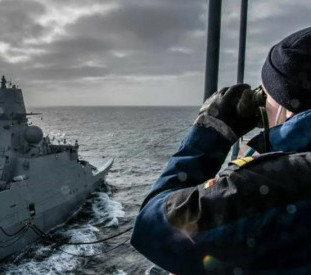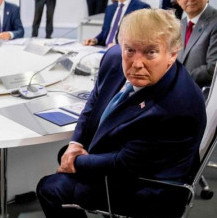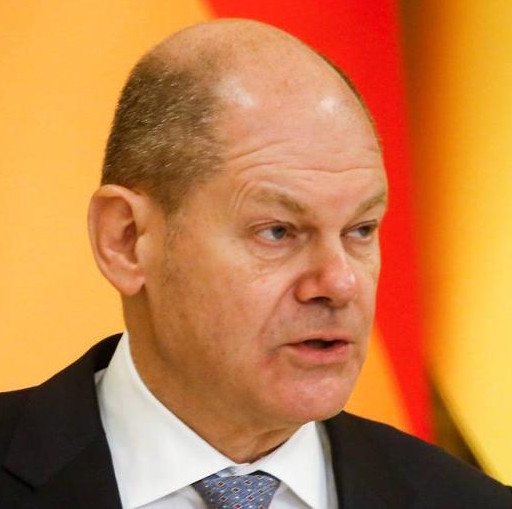After the Russian Foreign Minister Sergei Lavrov and U.S. Secretary of State Hillary Clinton had exchanged instruments of ratification on February, 5 in Munich, a new Russian-American Treaty on Measures for the Further Reduction and Limitation of Strategic Offensive Arms came into effect. In this regard, many politicians have begun talking about new opportunities for further reductions of strategic offensive weapons, improving security and stability in the world.
But not everything is so simple. On the way to the process of multilateral disarmament, strengthening of trust, enhancing predictability significant barriers still remain.
The U.S. plans to deploy components of the ABM system in Europe and the Atlantic region, which in future will pose a threat to neutralize Russia’s strategic nuclear arsenal, give rise to special concern. In his letter to U.S. Senate dated February 2, Barack Obama said that the U.S. will not abandon the policy of “quantitative and qualitative improvement” of the national ABM system, including its four-step plan for its deployment in Europe.
It is noteworthy that all this is happening against the background of the unwillingness of NATO leaders to create a unified and technically integrated ABM system jointly with Russia. All proposals in this regard made to Russia by NATO indicate that a minor part was assigned to our country - that of a provider of information about the launched ballistic missiles, but not that of an equal participant in decision-making on the use of interceptors.
According to official agents of the Russian side, if the talks between NATO and Russia on missile defense will be used as a cover to build a missile defense system of the United States and NATO, while ignoring Russian interests, then Moscow will be forced to “take appropriate measures to protect itself.” As Russian Foreign Minister Sergei Lavrov noted on February, 5 at the Munich Security Conference, the Russian-NATO agreement on the discussion of ways to establish cooperation in the field of missile defense “in no way means Russia’s invariable consent to join NATO’s program developed without its participation.
A serious barrier on the way to building trust can become the re-equipment by the United States of SNF long distance carriers (more than 5,5 thousand km) for the delivery of ordinary, non-nuclear warheads. Suffice it to say that only four U.S. Ohio type fleet ballistic missile submarines, backfitted into non-nuclear sea-launched cruise missile (154 SLCM on each submarine) pose a threat to strategic stability and confidence.
At the same time, the United States offers our country an unrealistic solution to the problem of battlefield nuclear weapons, insisting on reaching an agreement “on eliminating disparities in stocks of battlefield nuclear weapons.” By the disparities the U.S. understands the alleged superiority of the Russian tactical purpose nuclear weapons over similar U.S. nuclear weapons, deployed in four European countries and Turkey.
At the same time Washington does not seem to take into account the geographic factor of TNW deployment, that is the fact that the American battlefield nuclear weapons deployed in Europe, represent forward-based armaments relatively Russia. Moreover, the U.S. started their modernization and upgrading of air assets to deliver them. And this is despite the fact that the deployment of U.S. battlefield nuclear weapons in Europe is a direct violation of the Non-Proliferation Treaty. Both on the part of the U.S. and the states, which have authorized their deployment on their territory.
The next barrier is the blocked conventional arms control regime in Europe. The U.S. and its NATO partners being parties to the Treaty on Conventional Armed Forces in Europe (CFE) have not still ratified it, while Russia and other former Soviet states have decided this question. Instead, possessing over Russia a majority in five categories of conventional weapons specified in the mentioned contract, the United States and its NATO allies have considerably exceeded the limits agreed in it. The Baltic States that became members of the North Atlantic Alliance have not yet become parties to the treaty.
The United States still holds a negative position regarding the non-militarization of outer space and prevention of deployment of any kind of weapon. Washington refused to endorse the statement made on October 5, 2004, that it will not be the first to deploy any kind weapons in outer space, as well as its appeal to the countries, which possess space capabilities to follow this example.
The U.S. did not support the joint Russian-Chinese draft Treaty on the Prevention of the Placement of Weapons in Outer Space, the use of force or threat of force in relation to space objects submitted in 2008.
During voting at the 65th Session of the UN General Assembly in December 2010, on the draft resolutions “The Prevention of an Arms Race in Outer Space”, whose co-authors were 36 states, as well as the resolution “Measures to ensure transparency and confidence-building measures in outer space activities”, whose co-authors were 69 countries, the U.S. delegation abstained from voting - in the first case together with Israel, and in the second one - alone.
The U.S. President, Barack Obama has limited his ideas about the space problems by a proposal to develop only a ‘code of conduct’ in space that would provide it with “controlled movement” of spacecrafts. Moreover, having come to the White House, Barack Obama actually held a course for the U.S. dominance in space and deployment there of shock weapons. This is evidenced by his endorsement of the Space Operations strategy presented by Secretary of Defense Robert M. Gates on February 1, 2010. Similar postulates are contained in “The U.S. National Space Policy” approved on June 28, 2010.
In general, it seems that the current U.S. administration has charted a course toward equipping the cosmos with space strike weapons.
Thus, a number of unresolved problems remain in the world on the way of building confidence between states, stability and security in Europe, which indicates relevance of the signing of a new binding treaty on European security, proposed by the Russian Federation.









